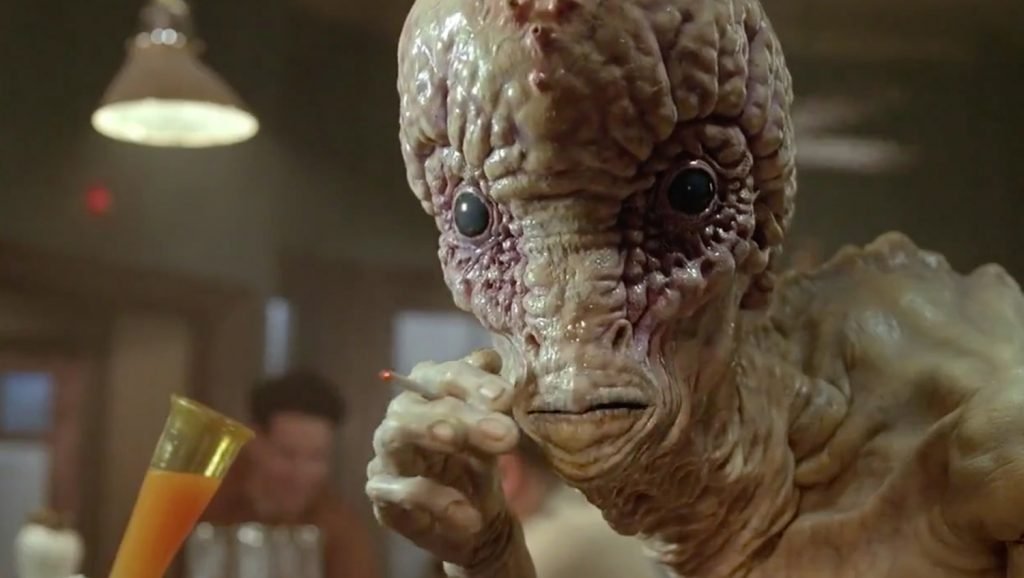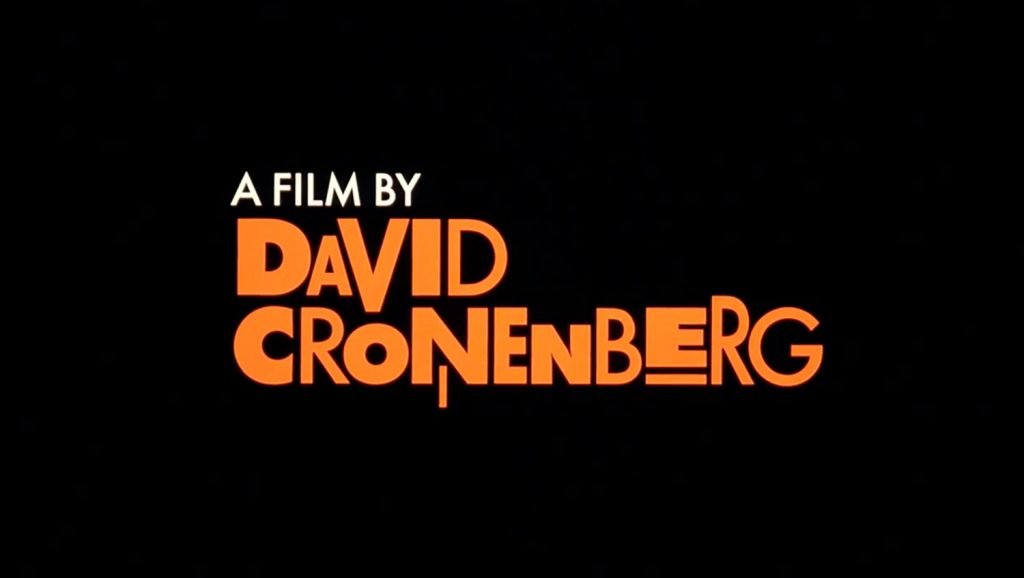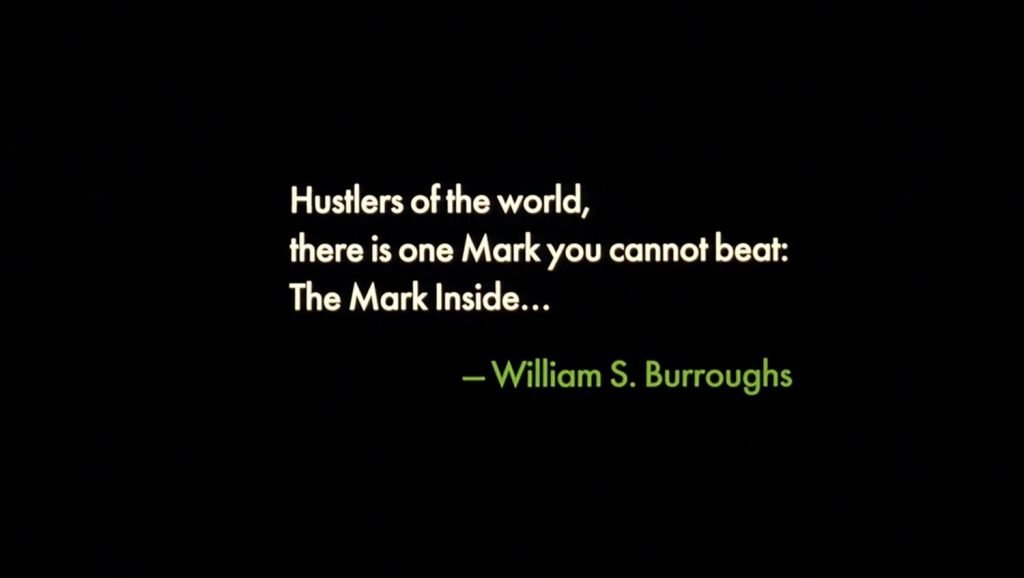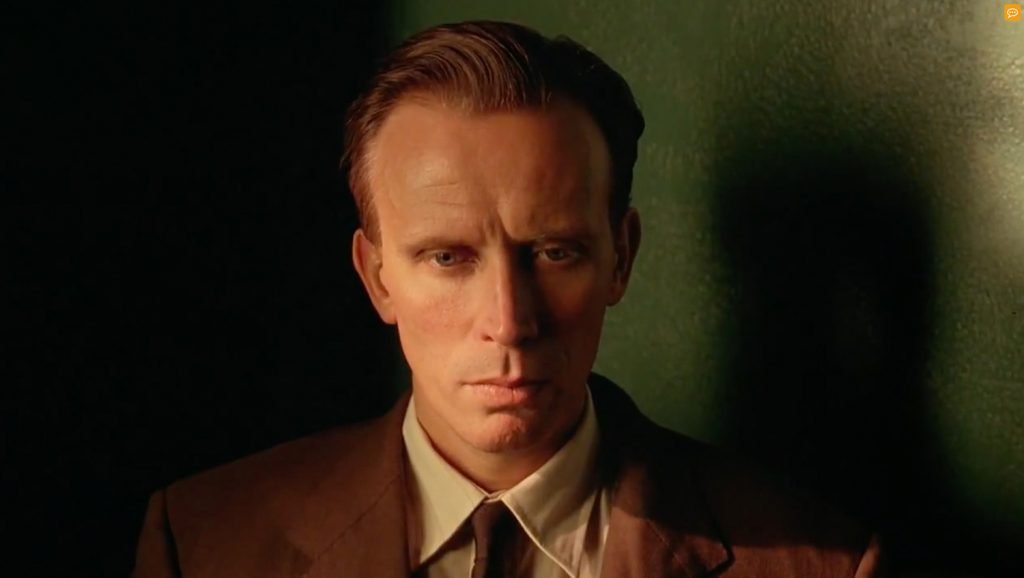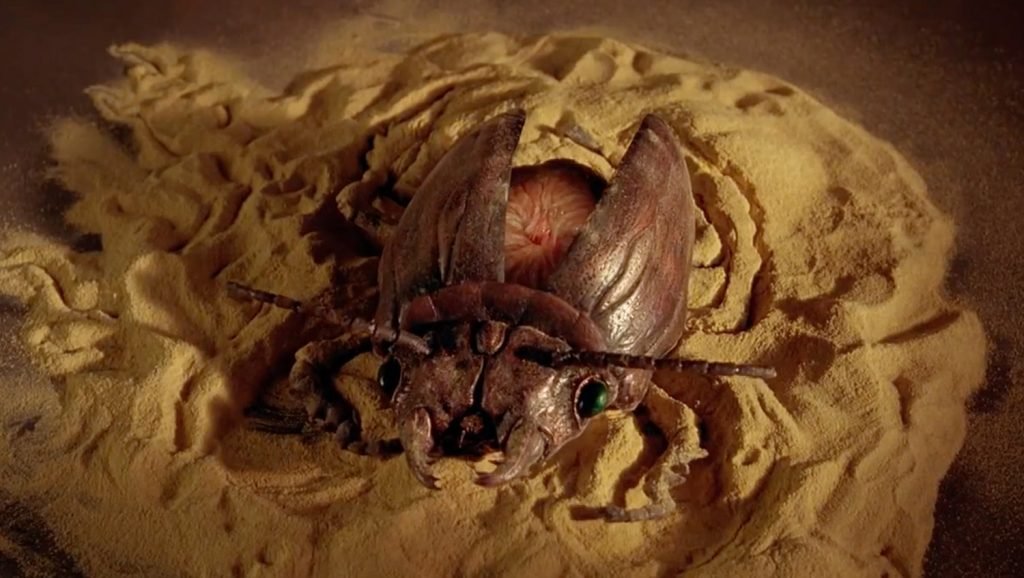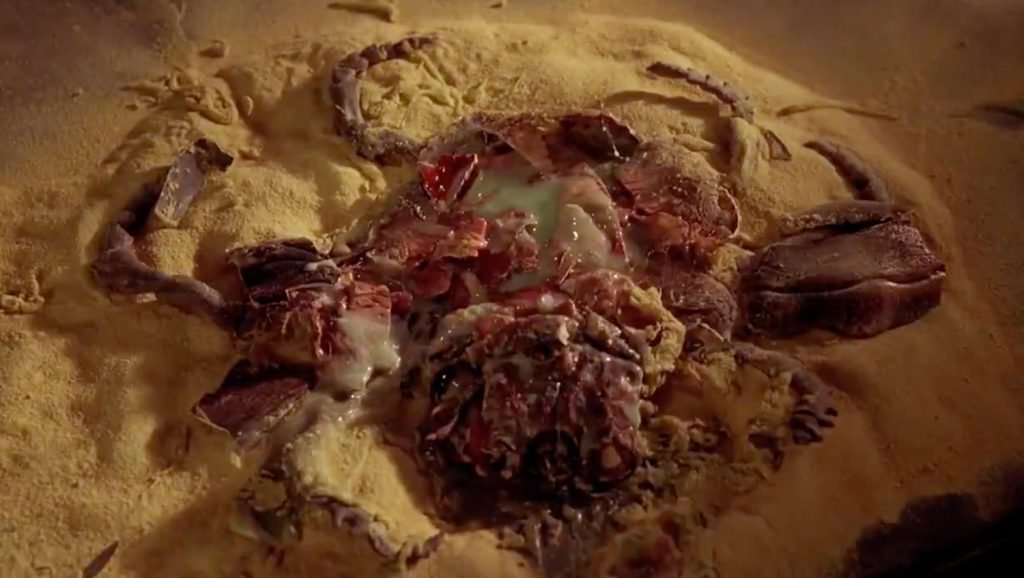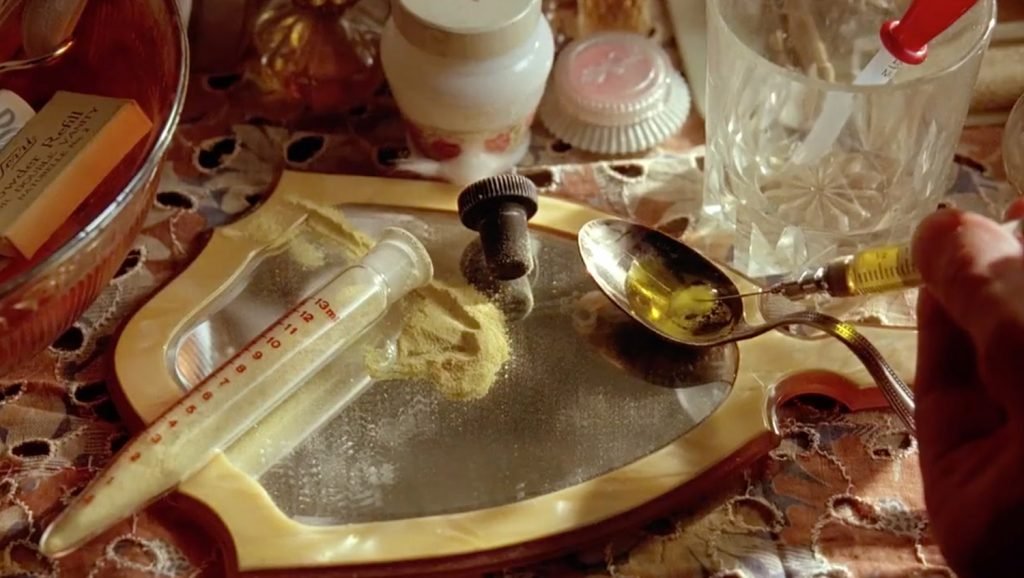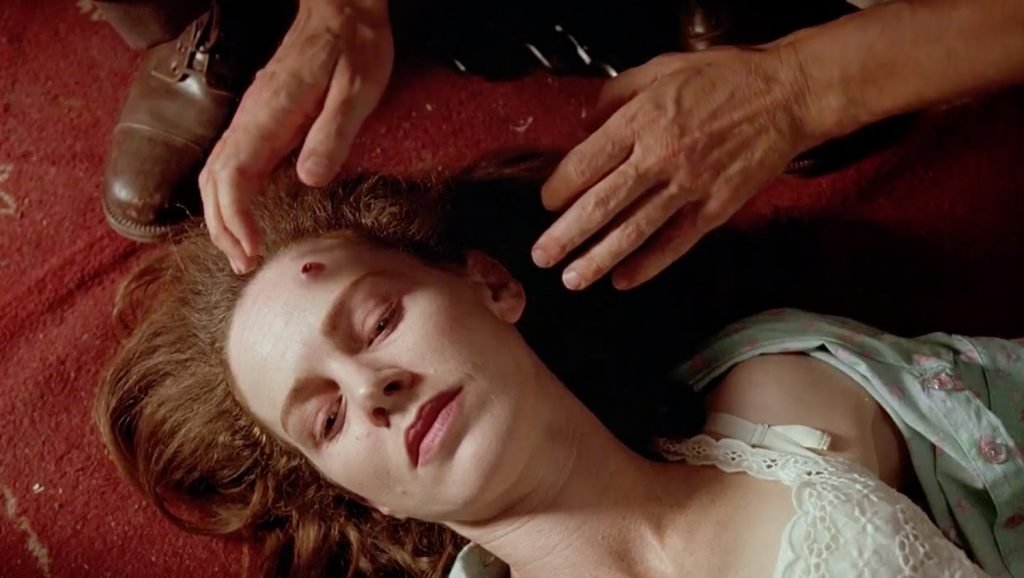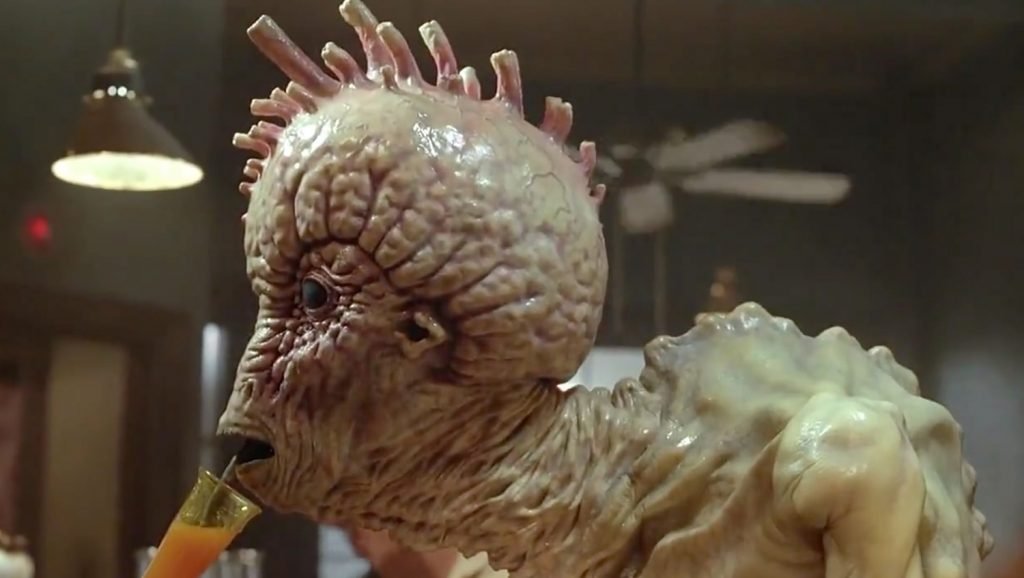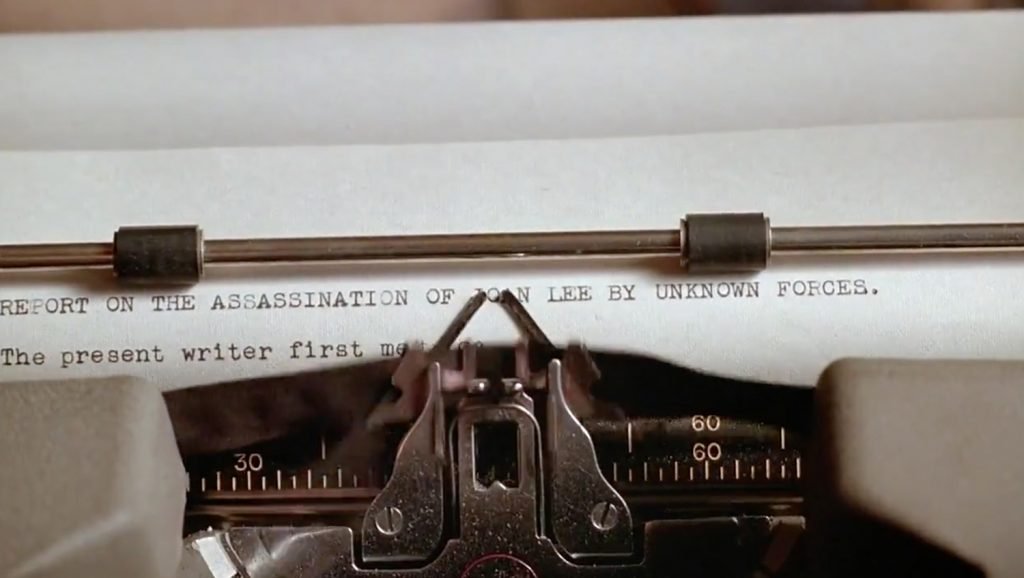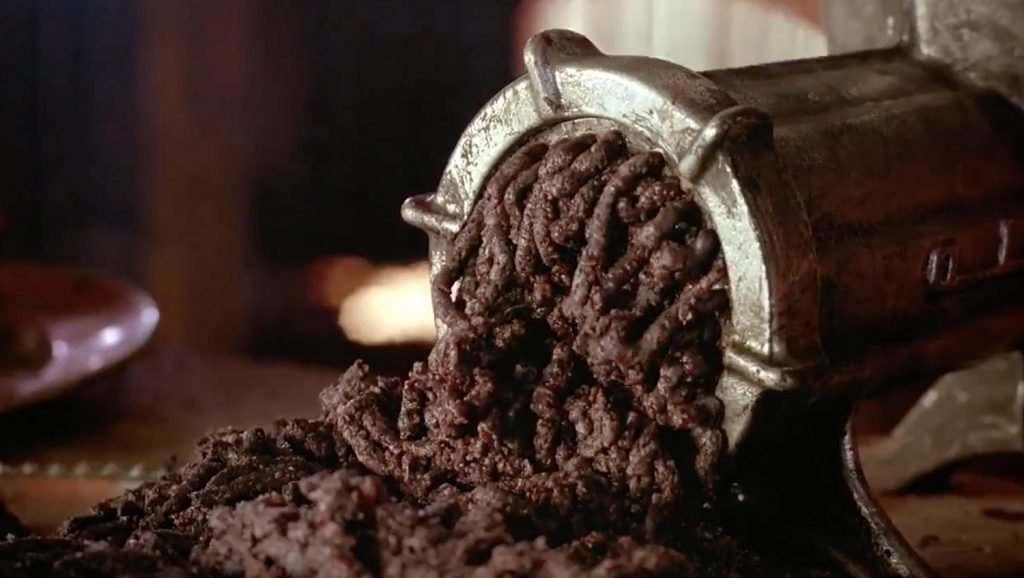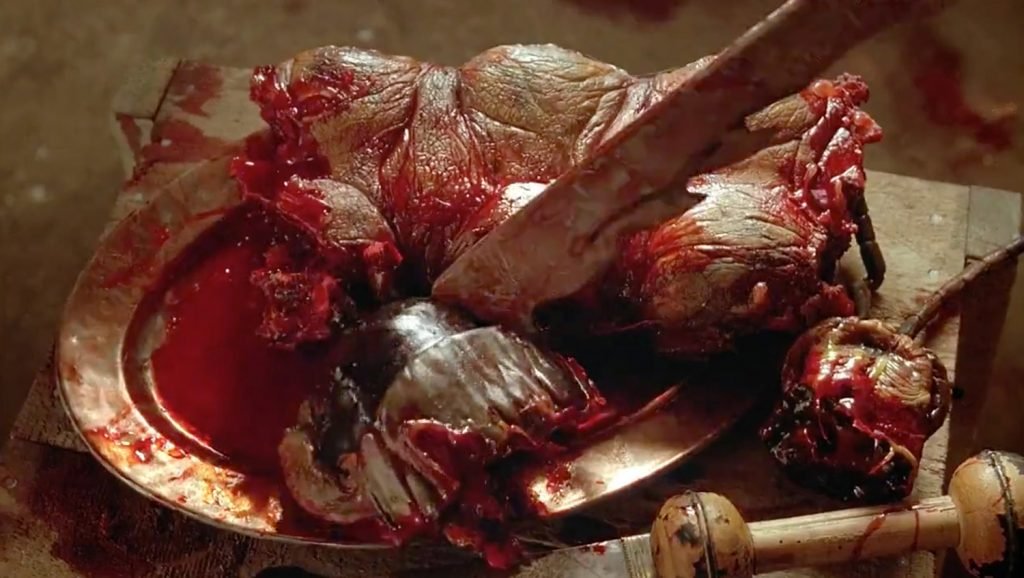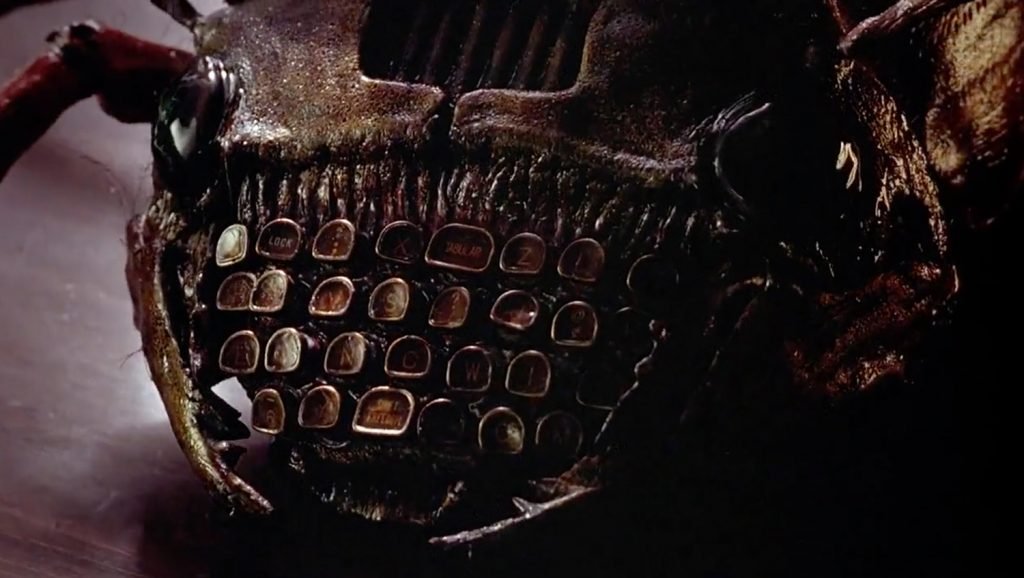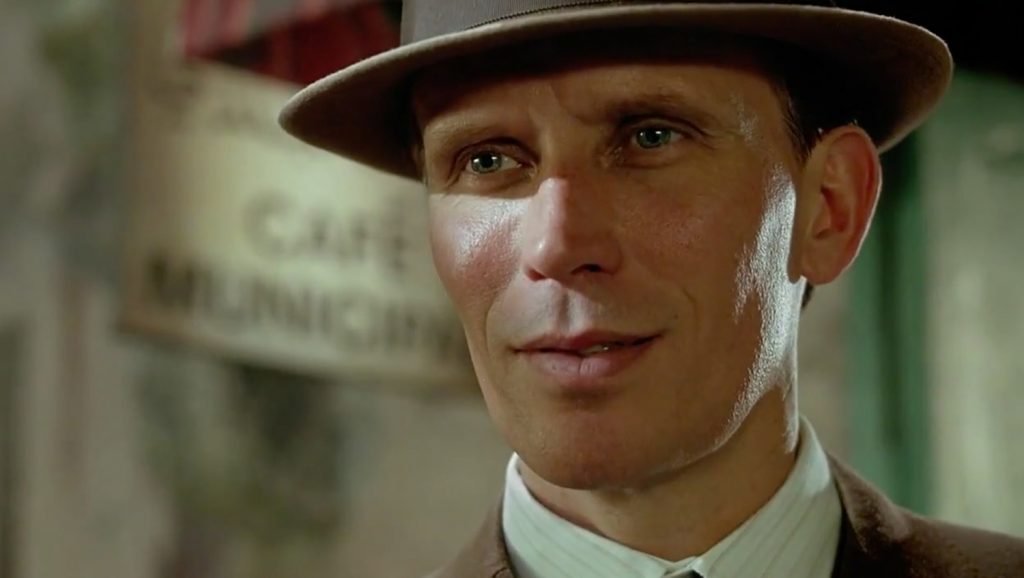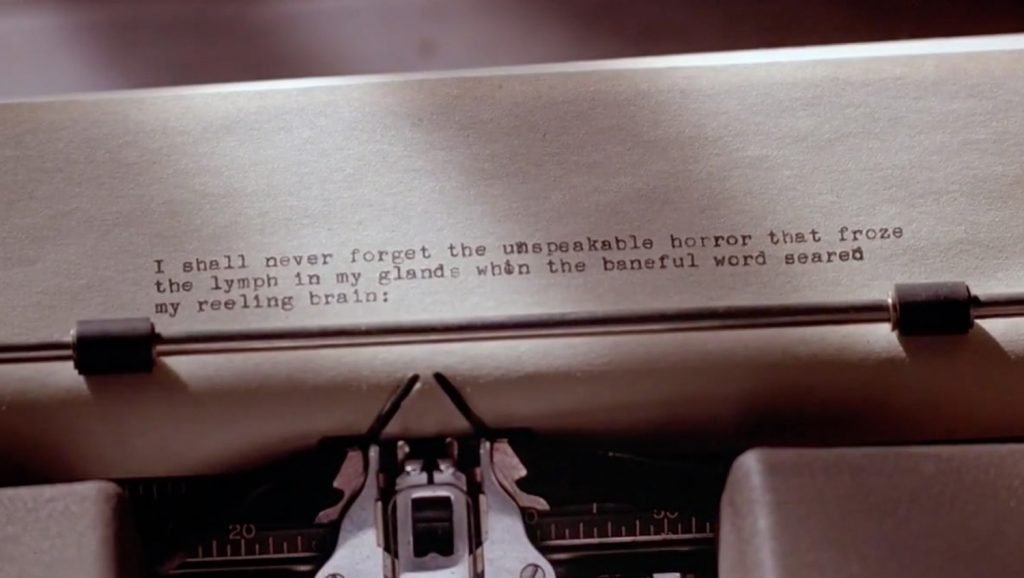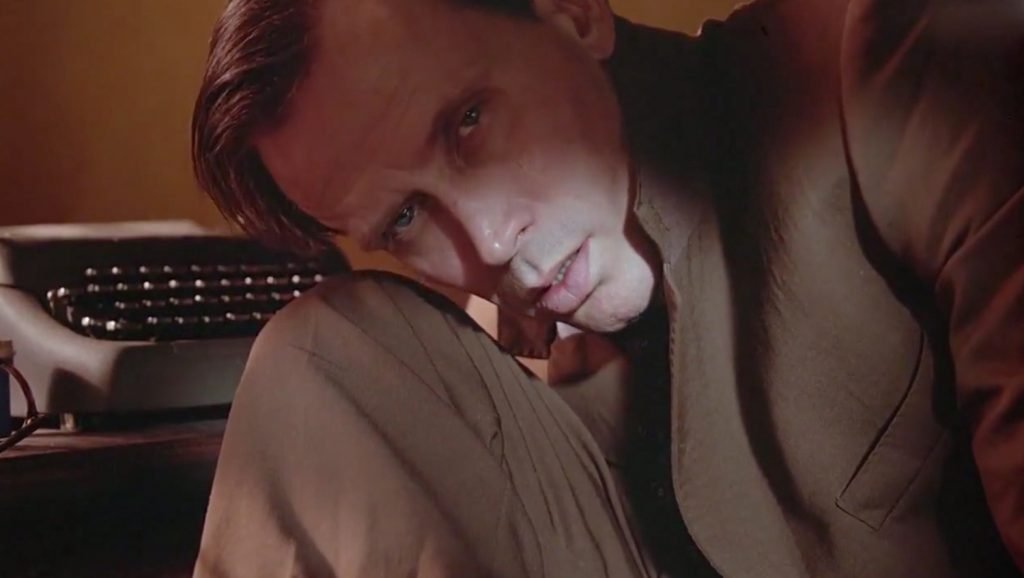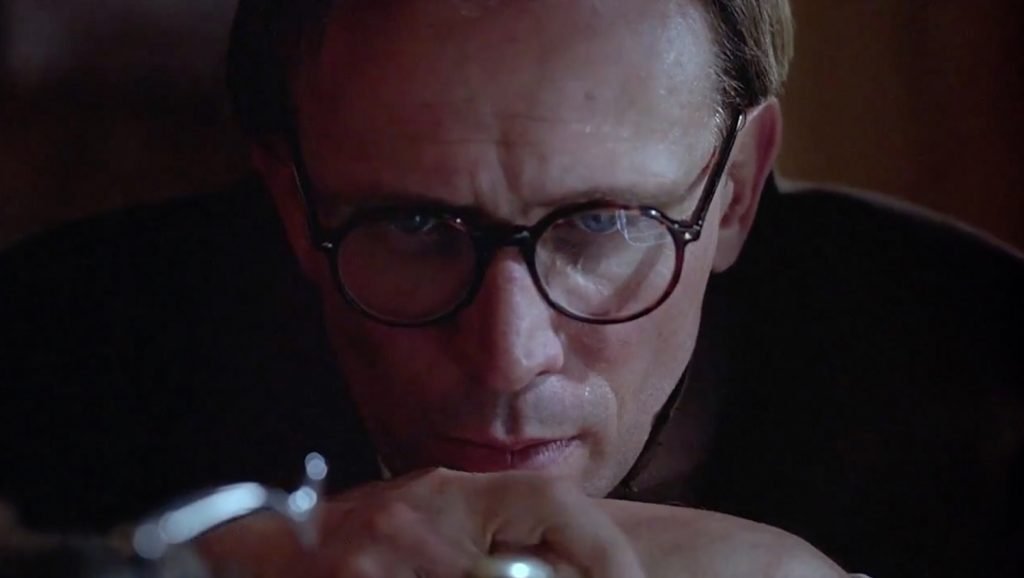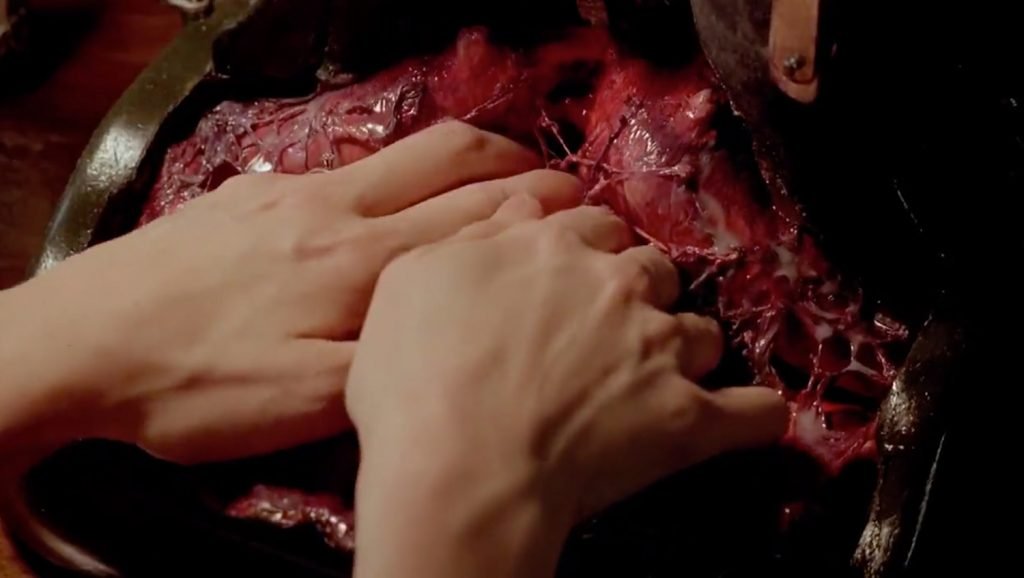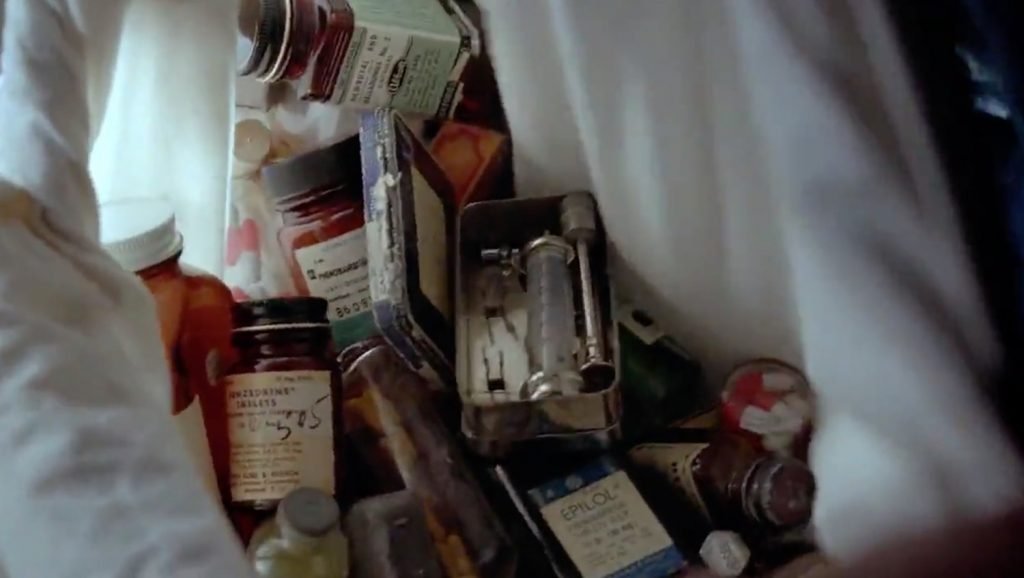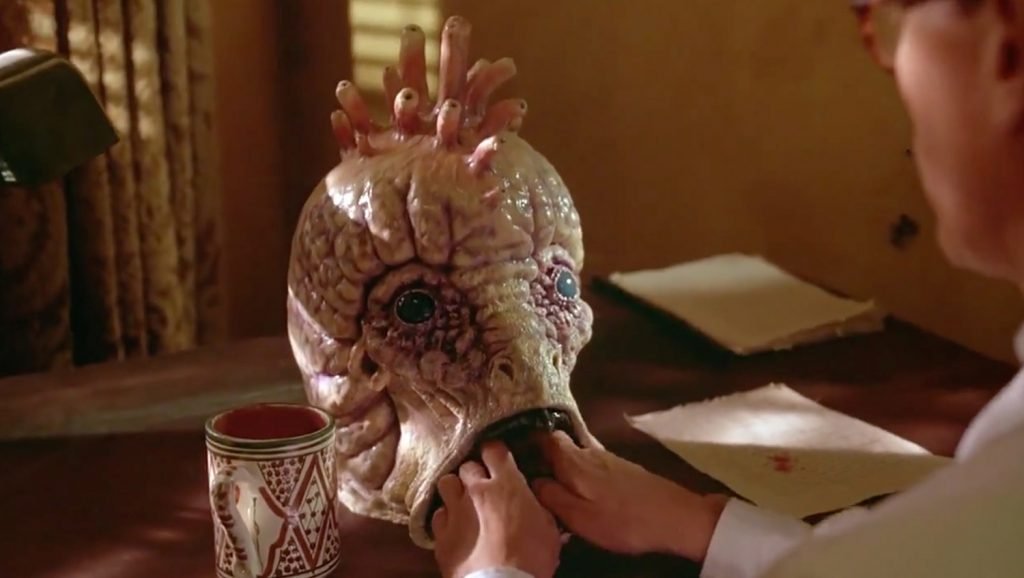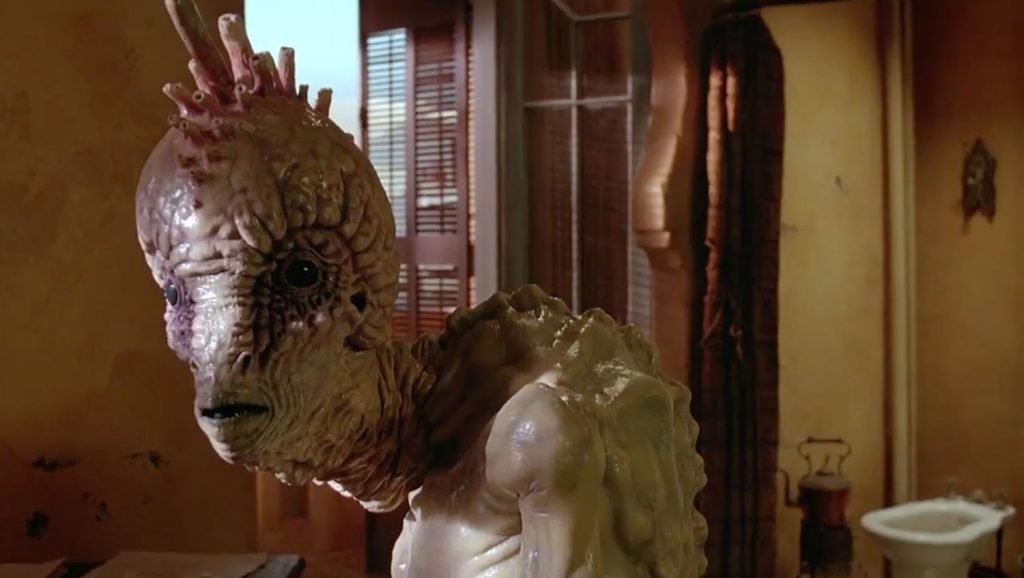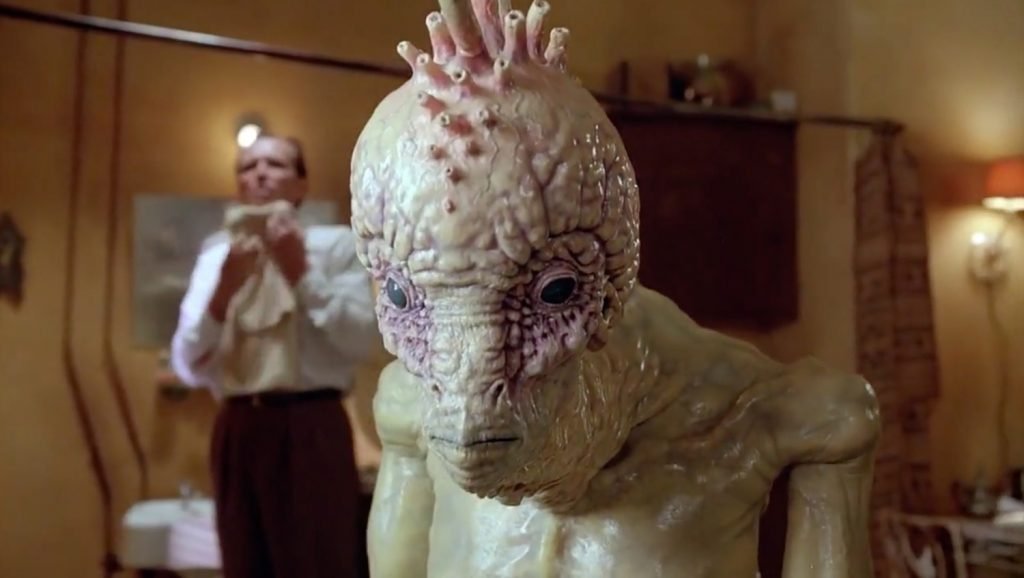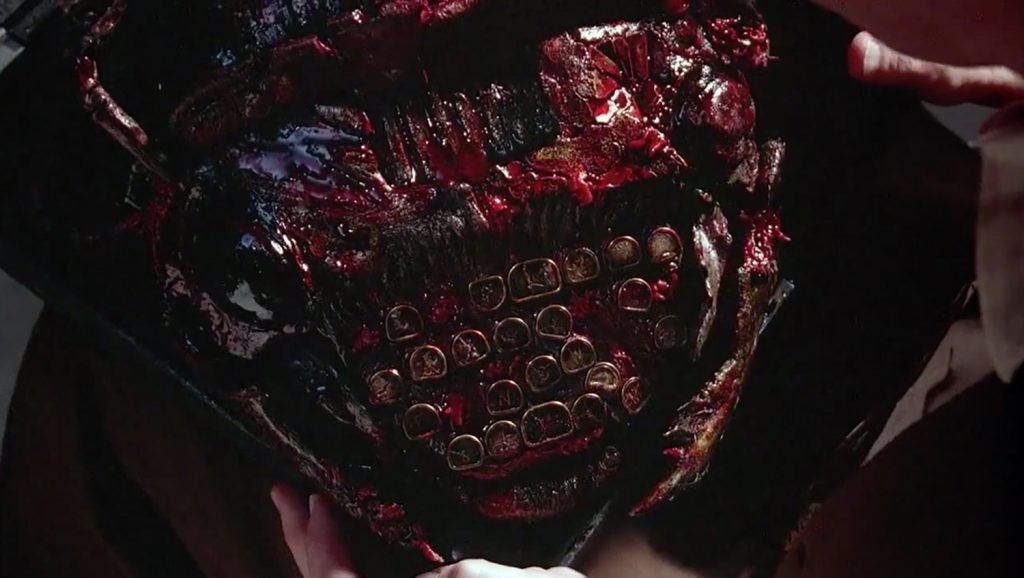With “Naked lunch” David Cronenberg succeeds in an extraordinary cinematographic operation, transforming William S. Burroughs’ complex prose into image and cinema, referring a reasoning, or rather a journey around the concept of “addiction”, and the construction of a mental universe which reveals itself, echoing with typically Kafkaesque elements, oscillating between play and nightmare.
Cockroach exterminator William Lee discovers that his wife Joan takes drugs with the yellow powder used to kill insects. When Lee is arrested for possession of drugs, he is taken to the police station in a state of hallucination: here he sees a secret agent in the form of a giant cockroach. The latter assigns Lee the mission to kill Joan, who would be a spy for the Interzone Incorporated organization. Lee kills the cockroach, but when he returns home he finds his wife in bed with his friend and writer Hank while another friend, Martin, recites poems aloud. William invites his wife to play the “William Tell” with a glass and a gun, and shoots her in the head killing her: in this way he unwittingly completes the mission assigned to him.
At this point William is contacted by an alien in a bar: he explains that he must get away from the city and is therefore sent to the Interzone to write reports on the activity of the enemy organization. The alien hands him the ticket for the Interzone apologizing for the fact that it is economy class and suggests, at his destination, to buy a particular typewriter, a portable “Clark Nova”. Still under the influence of hallucinations, Lee sees the typewriters turn into giant cockroaches and invite him to find an elusive Dr. Benway. To do this, William will have to seduce Joan Frost, the alter ego of his murdered wife. He understands that Dr. Benway is the head of an organization that produces a drug called “black meat” made from giant millipedes. Soon he manages to get to the doctor, who was hiding under the clothes of Joan Frost’s maid, Fadela.
After defeating Benway’s organization and sending the final report on the matter, William can fly to Annexia together with Joan Frost, with whom he has fallen in love. At the border two agents ask him for the documents and the reasons why he is visiting the country. William claims to be a writer, the agents ask him for proof and the man turns around in the back of his vehicle, where Joan Frost lies asleep. William wakes her up and suggests her to play William Tell, and kills her again. The agents then allow him to enter Annexia.
With the film “Naked Lunch” David Cronenberg made his debut in the nineties, leaving behind the decade of transformed/transformable meat with the anthemic slogan “glory and life to the new flesh”.
Cronenberg’s new meat is all about the untranslatability of language and the principle of dependence. After all, the film that the Canadian director draws from the literary masterpiece of William S. Burroughs, an author who has always been one of the cultural reference points together with James G. Ballard, is all stretched in the direction of a new skin to be sewn on, a sort of dystonic and dystopian escape into impossible utopian territories born by fantasy and open-mindedness.
It is language, writing, the weapon of destruction that Burroughs uses towards his readers, exactly like the yellow powder that William Lee uses to disinfect the rooms invaded by cockroaches.
The reader/cockroach in the same way must be kept at a distance, removed, crushed by a magnificence of the words used, in the narrative anti-scheme scheme, in the extermination or suppression not so much of logic but of its bourgeois appearance, of its useless and decadent pretension of placidity.
The untranslatability in images of a work like “Naked Lunch” is all condensed in the defeat of the word as a vehicle of connection between human beings. Dialectics does not go through the word, which is misleading and impossible. A concept that also belongs to Cronenberg’s cinema which starts from the epidemic and tumoral existence of a “new” language also in the psychotic drift in “Videodrome” and which in Burroughs literature sees the pinnacle of an ideal path. A path that starts again from “Naked lunch” and from the surreal and addictive story of the Uxoricidal exterminator of cockroaches William Lee.
The Interzone is the non-place of Lee’s mind just as in some measure it will be Beijing for Rene Gallimard in the immediately following work “M. Butterfly “, up to obviously Dennis Cleg’s self-imprisonment in “Spider “, which ideally closes this short but significant phase of Cronenberg’s career.
(In the middle, fundamental and monolithic, two unequaled dissertations on addiction and language beyond language such as “Crash” and “eXistenZ”).
The new flesh in “Naked lunch” is a new word, a new language, a new search for meaning where there is no longer appearance of any sense. Cronenberg takes in his hands a deliberately illegible novel and therefore absolutely to be read, a work to be stripped page after page to end subjected to the same perversion of Burroughs, a work that Cronenberg recreates by setting up a plot in which he brings together events from the book, real events in Burroughs’ life (as well as the real circumstances in which Burroughs wrote his novel in Tangier, published first in France in 1959 and then in 1962 in the USA) and aspects taken from other works by the writer, a work that despite the admission of an infidelity to the literary text succeeds in concretizing a scene capable of reporting a total alterity to the surrounding panorama.
In a narration that cannot be narrated, the need for a mind that has voluntarily become obtuse in the addiction to an external agent, drugs, lurks. In the mind of William Lee, writer and exterminator who takes on the same substance he uses to kill cockroaches, the idea of state oppression, of larger and more monstrous organisms that can crush him and deflect him creeps. At the end of the narration, after all, he is the Kafkaesque who becomes both the cockroach and, at the same time, the armed hand who wants to finish the cockroaches.
In “Naked lunch”, Cronenberg does not fathom the mind of a madman, nor the rotten and pharaonic fruit, in which everything still has the right to find its own place. Reality like the Freudian dreamlike delirium, heroin addiction hallucination and erotic sublimation of which Ballard / Cronenberg tells us is concretized in a suspended and at the same time involving aesthetic and linguistic form, between grotesque and noir, gothic and science fiction, becoming and death.
In fact, from Burroughs Cronenberg’s pen he extracts the unpleasant adjective, composing perhaps his most surreal and least placeable film. An extraordinary work as it is completely detached from linguistic and narrative praxis. A work that symbolically ends the era of flesh in transformation, of horror as language, of deprivation of the word and which begins Cronenberg to a visionary abandonment, in which the work on the image is no longer regulated by any orthodoxy.
While the mutation of the body is no longer possible and the flesh is matter that cannot be managed by the mind, the discourse is lost, leaving traces, narrative moments increasingly distant from each other. The world of erotic and intellectual desire is in the eye, in writing, in the ideal deformation of reality, in its rewriting by means of taking and being addicted to drugs. A demon of destruction that holds the human being and conscience in a narrative that sees, in the flesh to be mortified and martyred, the human being evolves and escapes himself.
William Lee kills his wife (as he was ordered, even though he denied the order: after all, as Burroughs wrote in the novel “A police state that works does not need the police”) by shooting her in the head instead of hitting the glass, a modern William Tell without ideals to prove to the world. The murder is the reason, the excuse that leads him to exile in the Interzone, where he is ready to dream of the longed-for borders of Annexia, the only true good possible withdrawal, rotting utopia.
In order to access Annexia, a territory that looks like a Soviet bloc country (Burroughs’ book came out in 1959), Lee must prove that he is a true writer: however, show border agents a pen, a hypothetical weapon of a journalist or novelist, that’s not enough. To prove his identity as a writer Lee will have to repeat the murderous game played with his wife: play William Tell once again and kill a beloved woman again, a liberating sacrifice that will allow Lee to disperse even more into the effluents of a drug that it is his obsession and his perdition. A psychogenic escape, because everything is perfectly enclosed in the mind, in which immaterial flesh and obsessions become desire. Eternal return to eternal perdition. A work that re-establishes Cronenberg’s cinema, telling the author’s search for a new language through which he can finally open his mind to inner dialogue.
